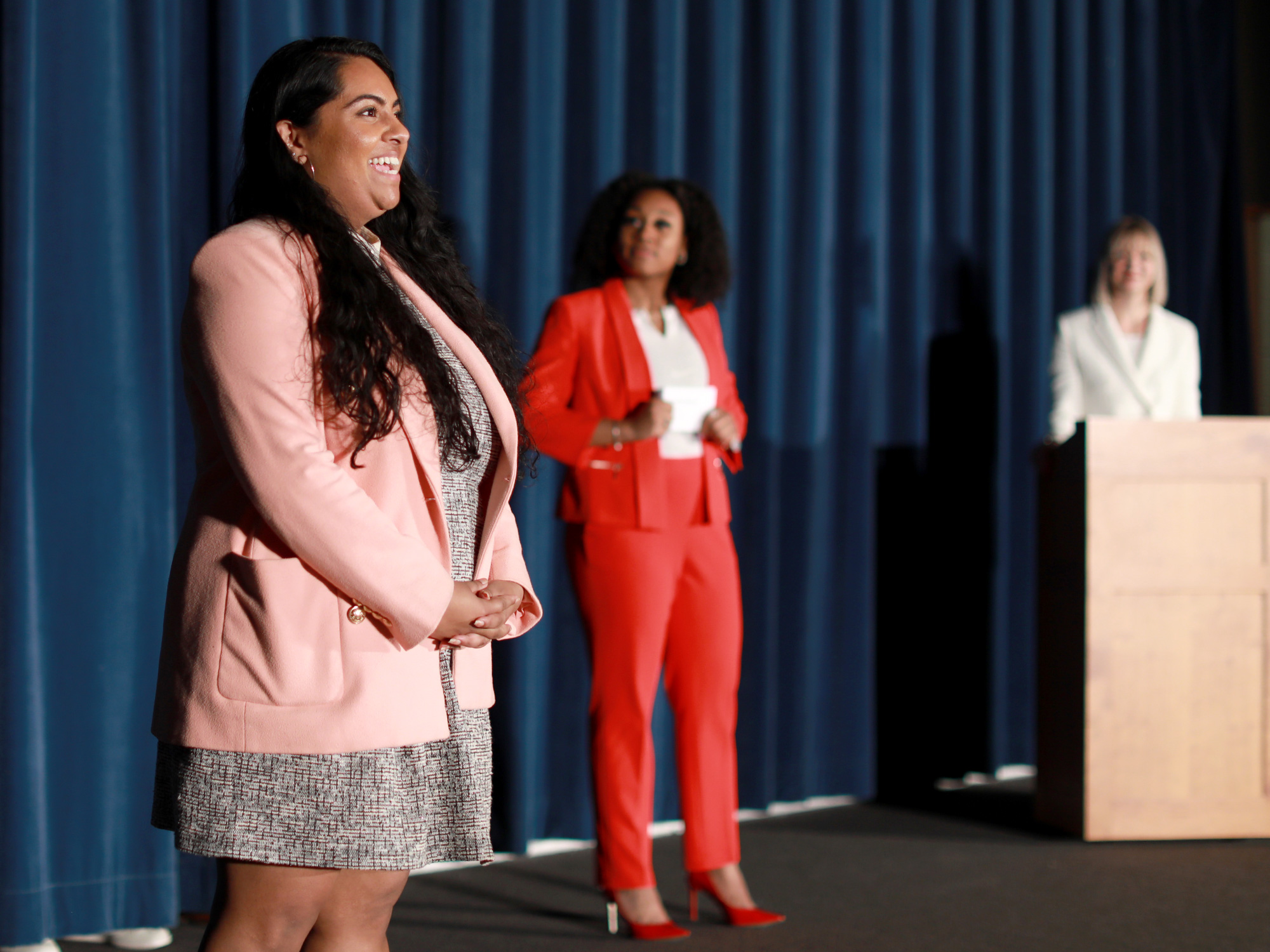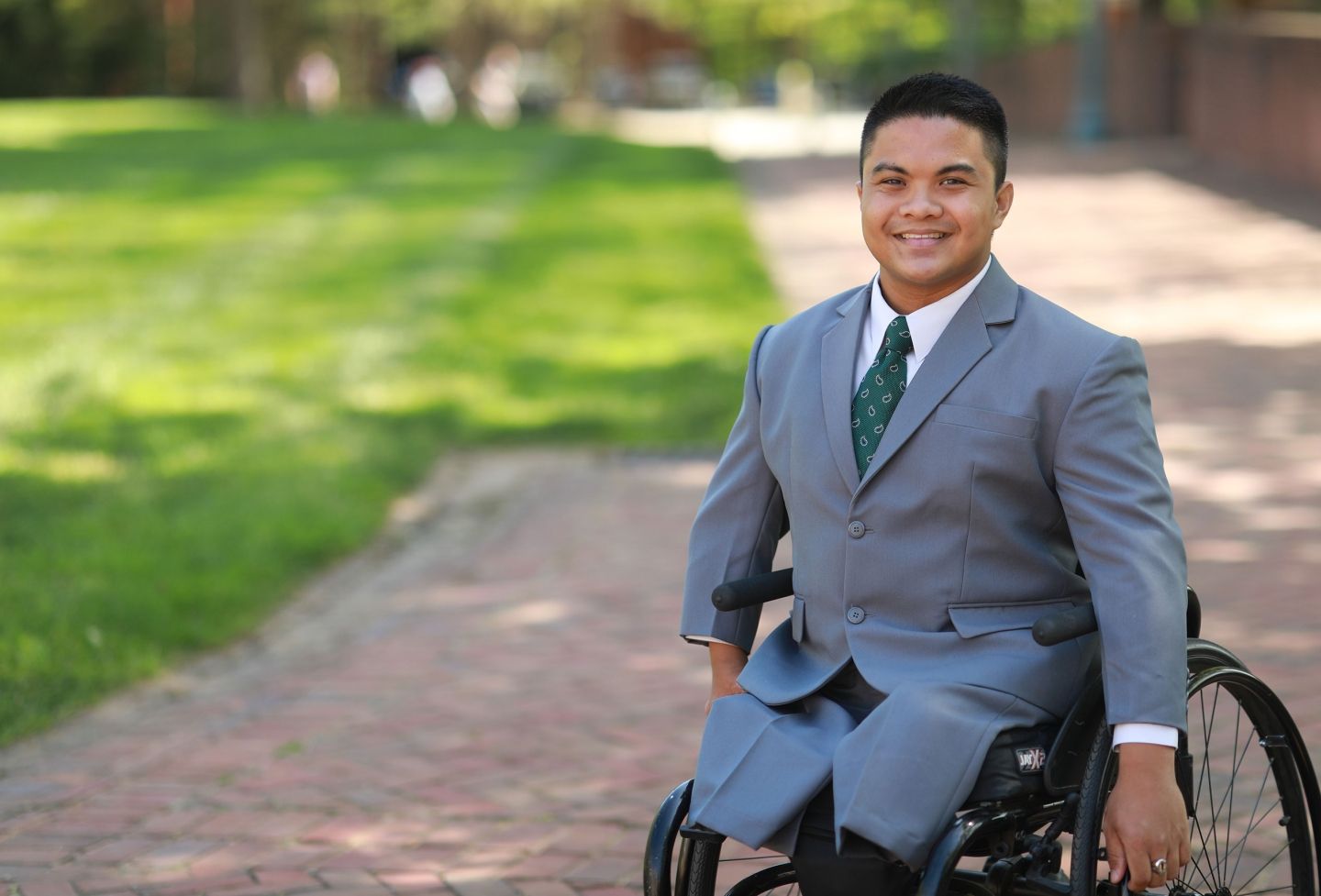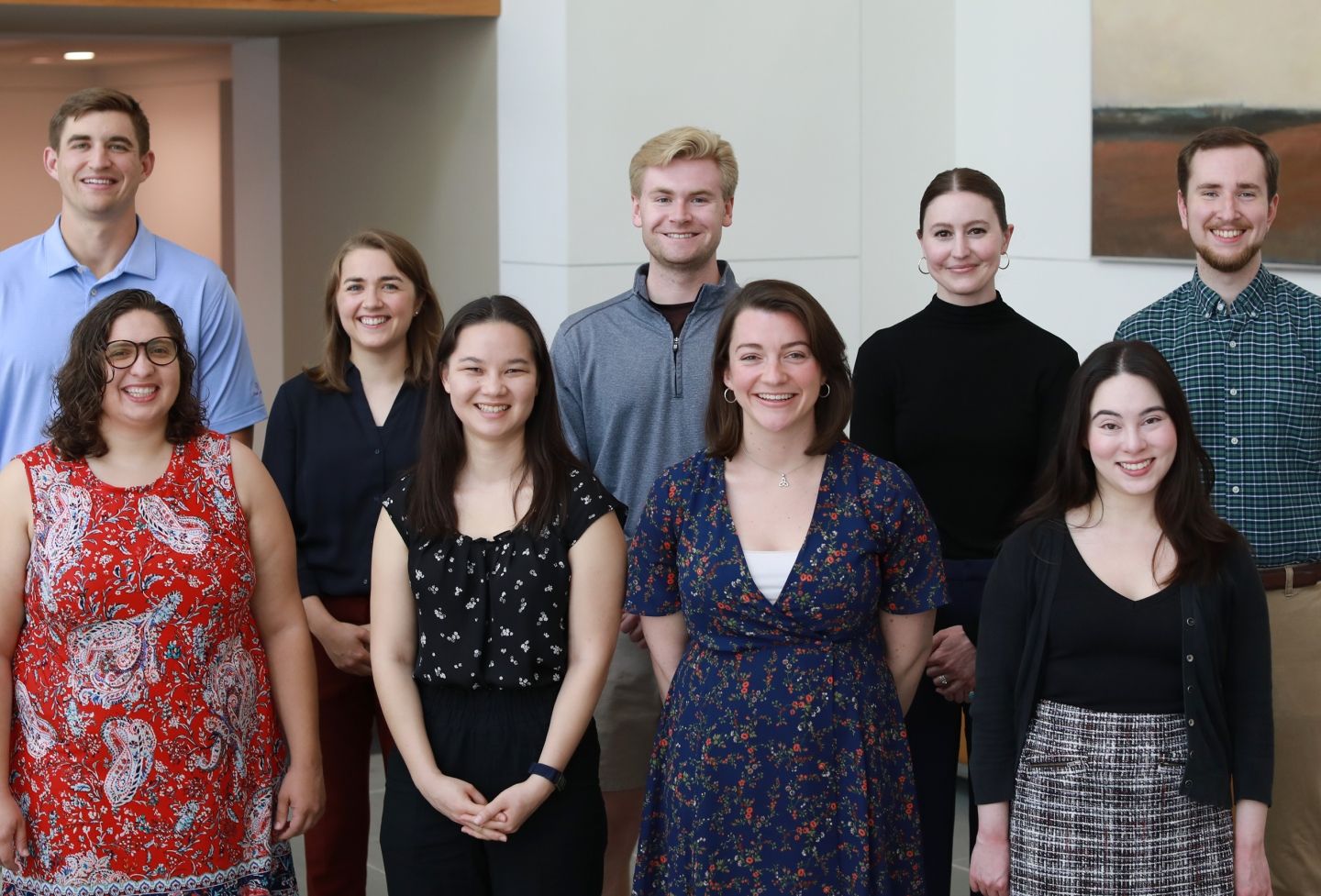Like many law students, Ruby Cherian, who will graduate from the University of Virginia School of Law this May, was a very serious child.
Deeply concerned about the world around her, and rigorously disciplined about her responsibilities, she would go so far as to ground herself from going to a friend’s birthday party when her homework wasn’t complete. She was 8 at the time.
“I was like, ‘Nope, my homework comes first,’” Cherian said. “My parents were like, ‘Really, you’re 8 — it’s fine!’”
That sense of commitment, particularly to justice and those in need, has carried her through college and law school and earned her a new two-year appointment as an Equal Justice America fellow at the Legal Aid Justice Center in Richmond, where she will be joining the civil rights and racial justice unit.
She plans to pursue civil right claims on behalf of incarcerated and formerly incarcerated people. Her new role will continue the work she did in UVA Law’s Civil Rights Clinic, which partners with LAJC’s Charlottesville office. At the clinic, she applied for sentence reductions, interviewed women at Fluvanna Correctional Center to ensure they were receiving health care that complies with a class-action settlement, and helped clients expunge their criminal records and apply for pardons.
“Women at the Fluvanna prison were getting horrible, horrible health care and a case [Scott v. Clarke] was filed and settled, but unfortunately they are still not getting adequate health care,” Cherian said. “It’s kind of the intersection of economic and racial justice.”
The two-year EJA fellowship, awarded for the first time this year to a UVA Law student, will provide a $65,000 annual stipend to support Cherian’s work.
 Cherian performed in this year’s Libel Show, a lineup of student-produced comedy skits and musical performances.
Cherian performed in this year’s Libel Show, a lineup of student-produced comedy skits and musical performances.
The daughter of Indian immigrants, Cherian grew up in a Dallas suburb. Over time, she learned to temper her studious nature by taking up lighter interests, like marching band in high school.
“At some point, I just realized that [seriousness] wasn’t sustainable and didn’t feel good,” said Cherian, who went on to earn degrees in biology and government at the University of Texas at Austin.
Although she has struck a healthy work-life balance, she is still deeply affected by the plight of the clients she has served.
“In public interest work, you’re pretty much the last person who can do anything for that client — we are taking this case because we know realistically that no one else will — and that can feel like a lot of pressure.”
She and her clinic classmates were devastated when their client, who had been convicted four years earlier as a juvenile, was denied a sentence reduction that would have kept him from being transferred to a prison for adults.
“That was a very difficult thing to come terms with,” she said. “Our team decided to go to Greenberry’s together to regroup and talk about our feelings — our grief, really — before meeting with the class to dissect the legal mechanics of what happened.”
During a summer internship with the Bronx Defenders, she researched the state’s use of archaic “bawdy house” laws to require landlords to begin eviction proceedings if even one resident of the home was being prosecuted for a drug-related crime.
“This obviously has serious repercussions, not just for the defendant, but for the entire family who’s being evicted as a result,” Cherian said. “Any time you get entangled in the criminal justice system, it’s oftentimes not just one thing — it can affect your immigration status, it can affect your child custody rights, it can affect where your family lives. This is just an example of all those things intersecting in the war on drugs.”
To decompress in law school, Cherian spends time tending to her relationships and continuing to express her musical and creative side. Perhaps most noticeably, she’s appeared in three straight Libel Show productions — her first, ironically, was in the role of “Anxious 1L,” a contestant vying to be kept in the friend bubble in a pandemic-inspired parody of the “Survivor” reality show.
Cherian may have tempered her serious streak, but she has no intention of tamping down the emotions that can be associated with helping those in need.
“I think sensitivity is a fine trait to have, and it’s not always the same thing as taking things too seriously,” she said. “Empathy just means you’re able to feel other people’s emotions.”
Amanda Yale, director of public service at UVA Law, also noticed Cherian’s commitment to service.
“Ruby came to law school wanting to do civil rights work and her interest never wavered,” Yale said. “I’m thrilled that she will get to pursue her dream of being a civil rights lawyer right after graduation, thanks to the prestigious Equal Justice America fellowship.”
When Cherian graduates from UVA Law in May, she will have nailed down two more degrees, the J.D. and a master’s degree in legal history with an emphasis on the immigration history of South Asians like her parents.
While her parents may have encouraged her to lighten up in life, they never discouraged her wide-ranging academic and political interests. Her father, after all, was a physics professor before he became a lawyer in India and then a nurse in Texas.
“They still wanted me to do well — they just didn’t think I needed to worry about it when I was 8,” she laughed.
Founded in 1819, the University of Virginia School of Law is the second-oldest continuously operating law school in the nation. Consistently ranked among the top law schools, Virginia is a world-renowned training ground for distinguished lawyers and public servants, instilling in them a commitment to leadership, integrity and community service.


